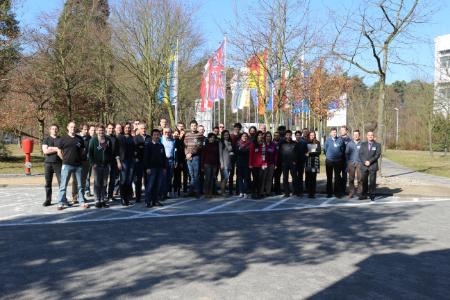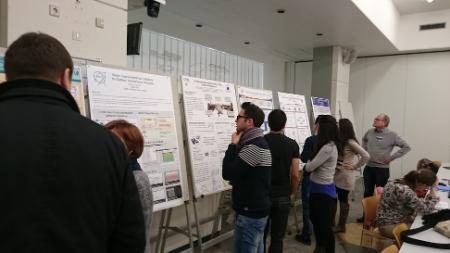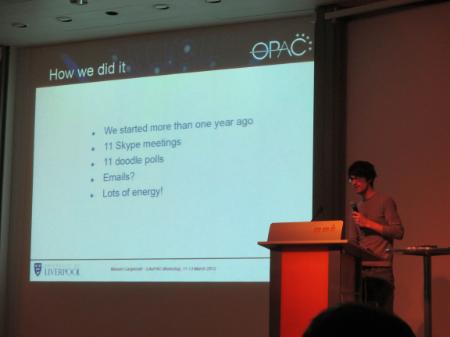oPAC Workshop on Computer-Aided Optimisation of Accelerators
The fourth oPAC workshop on Computer-Aided Optimisation of Accelerators (CAoPAC) was held at the Institute for Heavy Ion Research (GSI) in Darmstadt, Germany from 10 – 13 March 2015.
This topical workshop was organised by the fellows of the network, providing them with the opportunity to take charge of a whole event from scratch, with a limited time-frame, limited resources, and the challenge of offering an interesting event to attract a good number of participants. The organising committee was formed by Meghan McAteer (CERN), Xiangcheng Chen (GSI), Laura Torino (ALBA-CELLS), Michele Carlà (ALBA-CELLS), Charlotte Roose (ESS), Marcin Bartosik (CERN), Xavier Nuel Gavaldà (Soleil), and Manuel Cargnelutti (Instrumentation Technologies).
Starting more than a year ago, and after 11 skype meetings, 11 doodle polls, countless emails and lots of energy, the fellows finally succeeded in putting together an excellent workshop, attracting 51 participants from 18 institutions across Europe.
The workshop started off on Tuesday evening with a welcome reception for participants. Monday morning began with a session of talks about optics and beam dynamics modelling, organised and chaired by Meghan McAteer, followed by a session focusing on control systems and data analysis, organized and chaired by Michele Carlà. The day concluded with a poster session during which participants discussed their work over coffee.
The Thursday session began with a guided tour of GSI experimental facilities, including the ion trap SHIPTRAP in which many of the heaviest elements were first created and observed, and the facility in which carbon ion radiotherapy techniques for cancer treatment were first developed. The day continued with a session about techniques for modelling accelerator components, organized by Marcin Bartosik and chaired by former DITANET fellow Adam Jeff, and concluded with a session discussing particle physics simulations for accelerators, organized and chaired by Charlotte Roose. Thursday evening ended with a dinner for all participants at a typical Hessian restaurant in Darmstadt.
The final day of the workshop began with a session about modelling the generation and propagation of synchrotron light, organized and chaired by Laura Torino, followed by an in-depth tutorial about CST. The workshop ended with concluding remarks by Manuel Cargnelutti in the name of the organising committee, commenting on the process and the experiences of the fellows who had worked to plan and executed the workshop.
The organising committee would like to thank everyone who participated and contributed to making this workshop a great success, especially the speakers for their excellent talks, the local oPAC fellows Xiangcheng Chen and Martina Sofranac for their considerable efforts in organizing the event, and GSI for hosting us.
Further information about the event and all presentations can be found on the workshop indico page.


